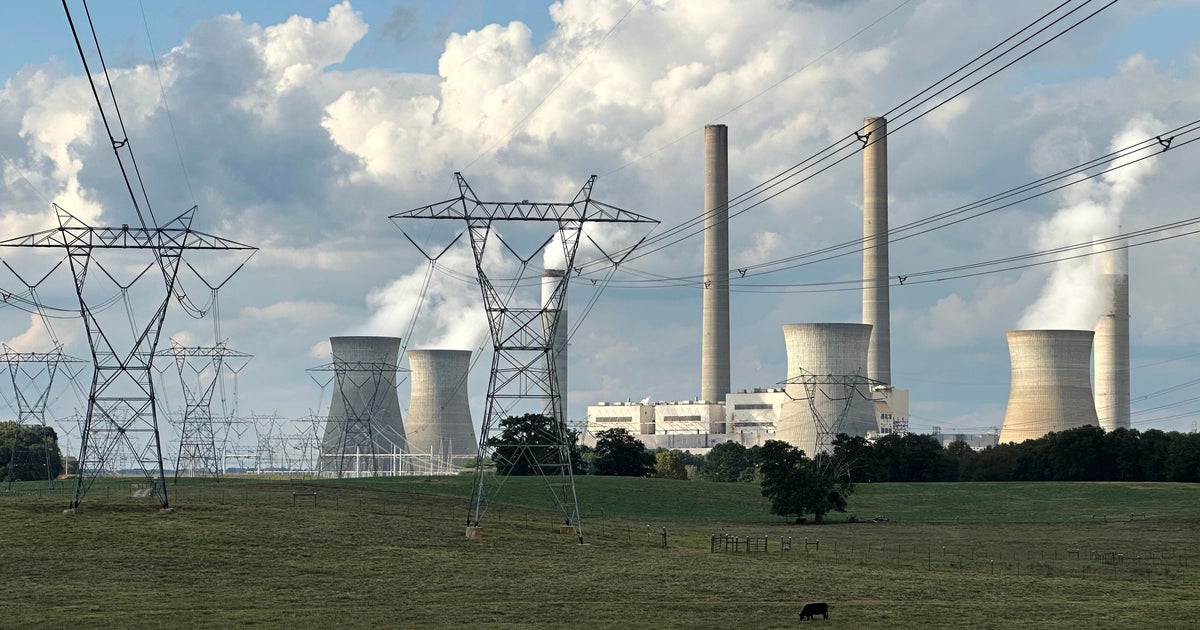Wisconsin Governor Releases Better 2011 Jobs Data
MADISON, Wis. (AP) — Republican Gov. Scott Walker released better 2011 jobs figures on Wednesday in an attempt to rebuff a central argument of those trying to recall him from office that Wisconsin's economy has suffered under his leadership.
Walker faces a rare recall election June 5 spurred mostly by anger over his successful push to strip most public workers of collective bargaining rights last year, but also by his stewardship of the state economy.
Walker swept to office on the promise to add 250,000 private sector jobs during his first four-year term, and initial figures gleaned from monthly employment surveys suggested Wisconsin actually lost 33,900 jobs last year, which would rank it last among the 50 states.
The initial figures gave Democrats and their candidate, Milwaukee Mayor Tom Barrett, powerful ammunition with which to attack Walker's record. Then on Wednesday, the governor took the unusual step of releasing fourth-quarter data due out in the U.S. Bureau of Labor Statistics' June 28 national employment report that show Wisconsin added 23,300 public and private sector jobs last year.
The new numbers are a more accurate reflection of what's happening, but they still show very slow job growth for the state, said University of Wisconsin-Madison economist Andrew Reschovsky. Since they're being released early, it's impossible to tell how Wisconsin compares to other states, he said.
"The real story is the picture of anemic job growth in Wisconsin over 2011, very far from the goal that the governor set," Reschovsky said. "They tell us the economy, if it is growing, it's at a slow pace."
The difference between the new numbers and what is released monthly lies in how the numbers were generated.
The new numbers come from the Quarterly Census of Employment and Wages, produced for inclusion in the U.S. Bureau of Labor Statistics' national report to be issued on June 28 — more than three weeks after the recall. Those figures are based on actual job counts reported by 160,000 Wisconsin employers as required by law as part of their tax and unemployment insurance reports.
The numbers that had previously been reported monthly and used by Walker and everyone else as a gauge of how well he was meeting his job-creation promise came from the Current Employment Survey, which surveys about 5,500 employers, or 3.5 percent of Wisconsin businesses.
Wisconsin and every other state rely on the survey for reporting job creation numbers until those figures are updated based on final figures from the quarterly census.
The data released Wednesday by Walker more accurately reflects the job market in Wisconsin and is supported by other positive indicators, including a spike in the amount of tax money collected, said Brian Jacobsen, an economist with Wells Fargo Funds Management in Menomonee Falls.
It doesn't tend to get as much attention because there's a six-month lag in what is reported, versus a two-month lag in the monthly data, he said. The monthly information, because it is based on such a small sample of businesses, is "fraught with problems," Jacobsen said.
Releasing the data now, ahead of when the Bureau of Labor Statistics processes it, is "unconventional and unusual, but it's not unethical or illegal," Jacobsen said. While the numbers are preliminary, the bureau typically only makes clerical revisions to the numbers submitted by the states, he said.
Barrett, who will face off with Walker in the upcoming recall vote, said Walker was "cooking the books" and he had no idea whether any of the numbers released Wednesday were accurate.
"He's clearly scrambling to do everything he can to put himself in a better light," Barrett said.
Walker held a news conference last summer to tout monthly jobs numbers based on the Current Employment Survey that showed dramatic improvement in Wisconsin. But as the recall has neared, and the jobs numbers showed Wisconsin had the worst record of any state in job creation, he's looked to distance himself from them.
Walker embraced the new numbers and launched a television ad touting them hours after they became public.
"Mayor Barrett, you said this election is about jobs; I couldn't agree more," Walker said in the ad.
Speaking to reporters earlier Wednesday, Walker said the numbers can't be denied.
"No matter what you feel about the timing, no matter what you feel about the process, the facts are the facts and facts don't lie," Walker said after speaking at a meeting of the Independent Business Association of Wisconsin, in Brookfield.
Reggie Newson, the secretary of the Wisconsin Department of Workforce Development and a Walker appointee, said he did not consult with Walker about releasing the information early and his decision to do so had nothing to do with the pending recall vote.
"We felt the need to share it with the public because employers, job creators and job seekers need to know the truth about the actual job picture in Wisconsin so they can make informed decisions," Newson said on a conference call.
The latest jobs numbers for the month of April, which are based on the survey Walker is attempting to discredit, are to be released on Thursday. That will be the final such release before the recall.
A new Marquette University Law School poll released Wednesday shows voters believe Walker would do a better job than Barrett in creating jobs, 48 percent to 41 percent. At the same time, 37 percent said they believed the state lost jobs over the past year, compared with 20 percent who believe there have been job gains.
The random telephone poll of 704 registered voters has a margin of error of 3.8 percentage points and was conducted between May 9 and Saturday.
The poll also showed Walker ahead of Barrett 50 percent to 44 percent among 600 likely voters, with a margin of error of 4.1 percentage points on that question.
(© Copyright 2012 The Associated Press. All Rights Reserved. This material may not be published, broadcast, rewritten or redistributed.)







